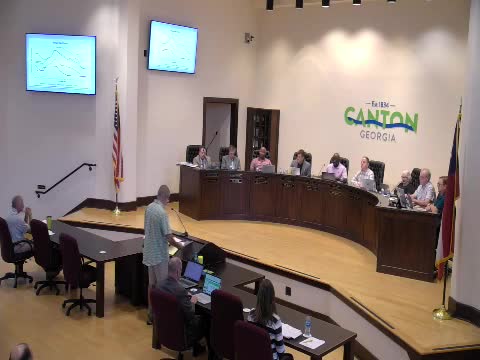City Council Faces Backlash Over Rising Taxes and Spending
July 19, 2024 | Canton City, Cherokee County, Georgia

This article was created by AI summarizing key points discussed. AI makes mistakes, so for full details and context, please refer to the video of the full meeting. Please report any errors so we can fix them. Report an error »

During a recent city council meeting, residents expressed concerns over rising property taxes, attributing the increases to the local government's handling of the millage rate. A resident highlighted that despite the city maintaining the same millage rate, increased property values have led to higher tax bills, which he argued constitutes a tax increase. He pointed out that his own tax bill surged by 151% since 2020, raising questions about the city's fiscal management and transparency.
The resident urged the council to consider rolling back the millage rate, suggesting that the city could lower it significantly by utilizing a portion of its reserves, which currently stand at approximately $14 million. He criticized the council for not being upfront about the tax implications of their financial decisions, stating, \"At least have the intellectual honesty to tell the citizens you're increasing their taxes.\"
In response, city officials defended their financial strategies, noting that the city has maintained a steady millage rate of 5.4 for the past seven years, which they claim is among the lowest in the county. The city manager explained that a significant portion of the projected revenue increase is due to new developments, which necessitate additional services such as police and infrastructure maintenance.
Officials also clarified that the city's reserves include funds earmarked for capital projects, and emphasized the importance of maintaining a healthy reserve balance for fiscal stability. They acknowledged the challenges posed by inflation and the need to invest in city services while managing costs effectively.
The council is set to make a decision on the millage rate, with discussions highlighting the balance between providing necessary services and addressing residents' concerns about tax increases. The meeting underscored the ongoing debate over local government fiscal policies and their impact on community members.
The resident urged the council to consider rolling back the millage rate, suggesting that the city could lower it significantly by utilizing a portion of its reserves, which currently stand at approximately $14 million. He criticized the council for not being upfront about the tax implications of their financial decisions, stating, \"At least have the intellectual honesty to tell the citizens you're increasing their taxes.\"
In response, city officials defended their financial strategies, noting that the city has maintained a steady millage rate of 5.4 for the past seven years, which they claim is among the lowest in the county. The city manager explained that a significant portion of the projected revenue increase is due to new developments, which necessitate additional services such as police and infrastructure maintenance.
Officials also clarified that the city's reserves include funds earmarked for capital projects, and emphasized the importance of maintaining a healthy reserve balance for fiscal stability. They acknowledged the challenges posed by inflation and the need to invest in city services while managing costs effectively.
The council is set to make a decision on the millage rate, with discussions highlighting the balance between providing necessary services and addressing residents' concerns about tax increases. The meeting underscored the ongoing debate over local government fiscal policies and their impact on community members.
View full meeting
This article is based on a recent meeting—watch the full video and explore the complete transcript for deeper insights into the discussion.
View full meeting
